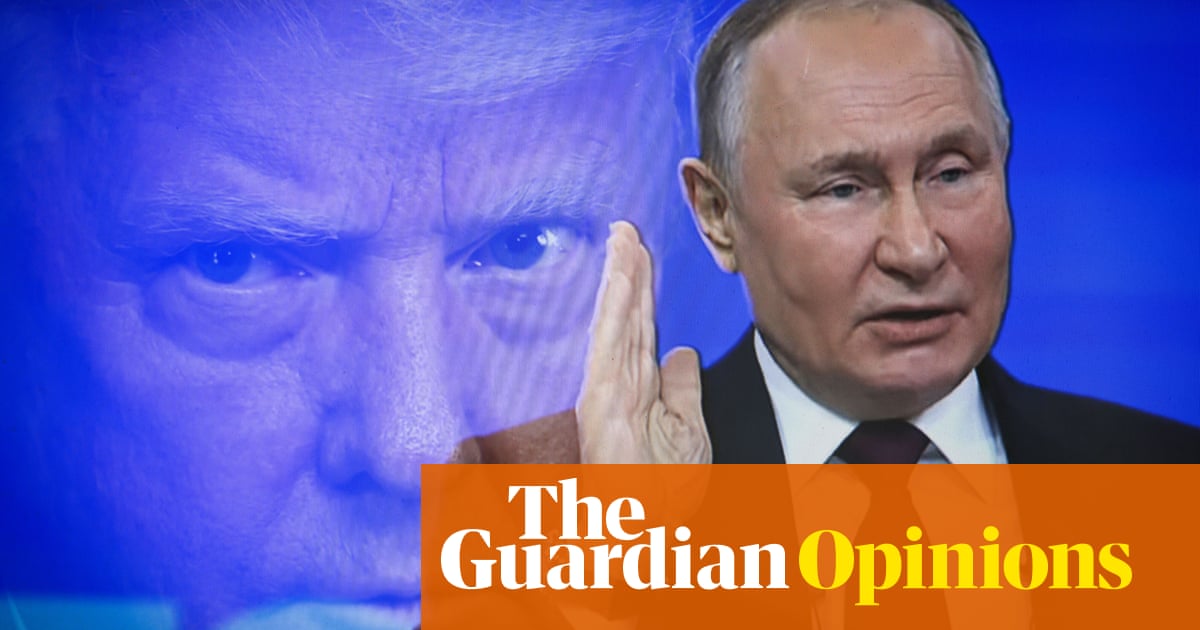There could hardly be clearer evidence than Donald Trump’s latest attack on Volodymyr Zelenskyy, and the US administration’slast-minute snubof London peace talks, that what matters to him is not Ukrainian sovereignty and safety, nor the transatlantic alliance, but a deal with Vladimir Putin. The US president saysan agreement is close, withleaks suggestingthat Washington would recognise annexed Crimea as Russian with Moscow giving little if anything in return. For Mr Trump, it is Ukraine’s president who is harming negotiations by saying he will not recognise Russia’s control.
Mr Putin is passionate about maximising Russian interests, attentive to every detail, skilled in negotiations, and believes that time is on his side. Mr Trump does not care about the outcome as long as he can claim he has ended the war, has little interest in the detail and has a habit of handing over the prize at the start of the process.
He described Russian aggression towards Ukraine as “genius” days before the 2022 full-scale invasion and his administration isabandoning effortsto hold Moscow accountable for war crimes. He holds a grudge against Mr Zelenskyy, and believes Mr Putin would“keep his word”on a peace deal. Above all, he is in a hurry. Having pledged that he could end the war “in 24 hours”, he wants something to brag about as he nears the end of his first 100 days in office.
No one wants peace more than Ukrainians, after so many deaths and so much devastation. Kyiv understands that there will be no magical restoration of territorial integrity. But in the words of Ukraine’s deputy prime minister, Yulia Svyrydenko, it is ready to negotiate, not to surrender.
JD Vance, the US vice-president,has a simple answer: it is time for the two sides to “either say yes or for the US to walk away from this process”. That might not suit Mr Putin quite as well as a carve-up. But US military aid to Ukraine is already reaching its end, intelligence could soon follow, and Washington could also restrict arms purchases even if Europe was willing and able to fund them to the extent needed.
Mr Putin has played an expert hand so far, throwing a bone to Mr Trump whenever it seemed expedient – as with the offer of an“Easter truce”, which did not halt attacks. His latest gambit isreportedlyto offer to cede claims on Ukrainian land that Russia does not actually control: the kind of Potemkin concession that Mr Trump might laud. He does not want a European “reassurance force” in Ukraine, said to be part of the US proposal, but may also conclude that its significance would be limited without a US security guarantee.
The timing of the leaks on the US plans, as well as the slight to Europe’s diplomatic efforts – with the abrupt withdrawal of the secretary of state,Marco Rubio, and Mr Trump’s special envoy, Steve Witkoff, meaning that London’s discussions were downgraded – reinforces the European understanding that a US-brokered deal may be a beginning, not the end, for Russian ambitions. A grotesquely one-sided, imposed agreement would encourage territorial aggression elsewhere too. It isn’t surprising that Mr Putin sees Europe as an obstruction and prefers bilateral talks. It should continue to alarm and appal us that the US, too, now sees its old allies as the problem, not the solution.
Do you have an opinion on the issues raised in this article? If you would like to submit a response of up to 300 words by email to be considered for publication in ourletterssection, pleaseclick here.
